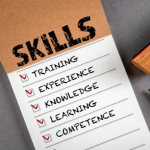You may likely face this common interview question when applying for your next job. Do not think that your job interviewer wants to know if you can exactly foresee your future and do not worry about how to answer.
Impress your interviewer with a clever answer by going through this article. Doing so will not only make your next job interview a success but also make you progress in your career.
Why do job interviewers pop the question “Where do you see yourself in five years?”

The introduction part of this article rightly states that your interviews are not expecting you to accurately tell them where you will be in coming years. However, the answer to this question is a key factor in helping your potential employer ascertain if you are the right fit for the company.
To assess your career ambitions

One reason why interviewers ask the question is to assess your career aspirations and ambitions. Your potential employer wants to know the details of your career plan, the kind of career path you have drawn for yourself, and the yearning you have to make your career a success. They really want to hear that.
To ascertain if you’ll be a long-term fit
Any organization will definitely hire someone who is loyal and committed, someone who stick around for a long time, and someone who can be called upon at any time to help the company achieve its goals. So another possible reason your job interviewer asks you this question is to ascertain if you will be a long-term fit for the company and if you are willing to show commitment to your career.
To assess the level of your interest in the role and company

Job interviewers want to know if your personal interests and goals align with the company’s goals and if you will able to work for the greater good of the company. He or she might use this job interview question to assess and gauge your personal values and see if they are in harmony with the overall values of the company.
How to answer the “Where do you see yourself in five years?” interview question
Answering this question should not be done in a flash and without consideration. It is very important to ponder over how to answer the question, ‘Where do you see yourself in five years?’ Let us now consider some of the best ways of answering this question.
Ponder over your short-term and long-term goals
As a job seeker, you should have a concise and clear list of goals, either short-term or long-term. If you don’t have any, now is the time to set them. Reflect on how you will accomplish them. Feel free to discuss these plans with your interviewer and let him or her see that you are a goal-oriented person.
Read Also: What Best Describes the Relationship Between Short-Term vs. Long-Term Goals?
Connect your goals to the role and company
It is vital to connect your goals to the position you are applying for and the organization at large. These goals could be personal or professional. When you have successfully made the connection, do not hesitate to discuss them with your interviewer. Ask yourself questions like, ‘Will the company help me achieve my goals? What will happen to me after I reach my goal? Will I be an asset or a liability to the company?’ Your interviewer wants to hear if your goals align with the job.
Focus on career growth and development

Your interviewer would not want you to be stagnant. He or she would want a candidate who is constantly working on his personal and professional development. Discuss with your potential employer the plans you have to achieve career growth and development.
Be authentic yet professional

There is no need to fake your response. The end result shall tell anyway. Be honest with whatever you share with your interviewer. Don’t just tell them what they want to hear but tell them what they need to hear. Don’t exaggerate your statements. Be authentic with your response and maintain professionalism by mentioning things that are related to work.
Example answers for “Where do you see yourself in 5 years?”

Now that you have read some tips on how to answer this question, here are some example answers to “Where do you see yourself in 5 years?”
Career advancement goals

What if you’re interviewing for a job and you’re asked a question like, “What are your career goals?” A short example of how you might answer is this, “In the next five years, I see myself working on career growth and advancement. This involves accepting more work responsibilities and increasing my desire for learning. I have a balanced schedule of work and personal life to enable me to advance in my career”.
Leadership goals

Aspiring for a leadership role is not a bad thing. For leadership goals, you could say, “Some of the goals I want to accomplish in the next five years include leading a team of serious-minded, dedicated, and committed members. I intend to use my knowledge to help the team grow and contribute my quota to the success of my team”. You could also say, “In five years’ time, I see myself in a leadership position, carrying all members of my team along”
Read Also: Leadership: 12 Traits of Effective Leaders
Skill development and learning goals

Mentioning your goal to develop a skill and add to your learning is essential in answering the big question. For goals of this kind, you could say, “I am aware that being at your best in this position requires technical skills, communication skills, and tactical skills. In the coming years, I will push myself to learn as much as I can to effectively perform my duties. I will attend the necessary workshops, seminars, and training programs to build a better version of myself and thus be an asset to the company”
Entrepreneurship or business goals

Entrepreneurship or business goals are success factors in any commercial business as well as non-profit organizations. Your interviewer is keenly interested in knowing if you can take risks and manage them. You could include entrepreneurship goals in your statement like this, “I believe that taking risks is crucial to the profit-making scheme of your company. At least five years from now, I see myself as an integral part of the company, effectively managing risks and making good financial decisions for the company”
Read Also: 10 Goals Every Entrepreneur Should Set to Maximize Success
Work-life balance goals
There should be a difference between your work life and your personal life. Organizations do not like it when employees allow their personal life encroach into their work life. An example of how you can answer this is, “I know work is paramount to the success of your company. I will not try to let my personal life interfere with my work life. In the next five years, I see myself taking steps to arrange my schedule in order to lead a balanced life”.
List of sample answers for the question “Where do you see yourself in five years?”

There is a right way of answering the question, “Where do you see yourself in 5 years?” There is also the wrong way. Below are sample answers you should avoid when you answer this question.
Being too vague or unrealistic
When answering the question, do not speak jargon else your interviewer’s mind may begin to wander and lose interest in what you are saying. Stay real to yourself and let your interviewer be clear about what you want to achieve and how you want to achieve it.
Only focusing on personal goals

Do not focus on how the company or the role in question will benefit you alone. That could mean you are selfish even when you have the company’s best interest at heart. Your interviewer should see that you are truly interested in investing yourself in the company just as they are looking forward to investing in you. This will make you a suitable candidate for the specified position. Focusing on your personal goals alone could also scare your job interviewer away. For instance, saying things like, “I want to be a hiring manager” could make him feel like you want to take his or someone else’s place.
Suggesting you plan to leave the job soon

An organization will not waste its time employing you if it knows that you do not plan to stay for long. They intend to spend their time and resources on you and if you are not planning to be committed, they will not hire you. So be careful that you do not make them assume you will not stay. Avoid saying things like, “I see myself working in a bigger and better establishment in five years to come”.
Not showing interest in the role or company
When answering the big question, it is important to tailor your answer to the specific needs of the company. Otherwise, you will give the impression that you have no interest in the role you’re interviewing for or the company. So, avoid responding like this, “Five years from now, I want to work as a Remote Head of Administration”. What if the company does not want to go remote? Try to learn about the needs of the company before responding to the question.
Providing too much detail on personal life
Your interviewer is not interested in knowing so much about your personal life. You have provided your personal details in your resume and cover letter already. So keep your answer circled around the company and not about yourself. Avoid saying this, “In five years’ time, I will get married and raise two kids and get a big mansion for myself”. The company does not need to know and to some extent, they don’t even care.
Tips for developing your 5-year career plan

A 5-year career plan is a list of strategies and goals for the next five years that you want to accomplish. Career plans help you stay on your career path. Sometimes, developing it could be challenging. Some tips have been discovered to help you do so:
Reflect on your values, interests, and aspirations
Think clearly about your interests and aspirations and set goals that are aligned with them. The success of your goal development depends largely on the close relationship between your goals and interests. Reflecting on your values, aspirations and interests will help you know what you want.
Set goals that are S.M.A.R.T

Before you think of developing your career goals and aspirations, use the S.M.A.R.T. goal formula to ensure that they are practical. Using this formula to gauge and access your goals shows that your goals are smart, measurable, achievable, relevant, and can be achieved within a specific time. For example, setting a goal to improve your communication and listening skills is an excellent goal you can set for yourself.
Make short-term goals to work toward the 5-year goals
A five-year plan is already a long-term goal. Plot out short-term goals that will assist you in successfully reaching your long-term career. For example, if you want to be in five years’ time, the Head of Administrations, you can make the goal of improving your leadership and communication skills as well as administrative skills.
Identify resources and strategies to achieve goals
Let’s apply the same example above. Say you want to be the Head of Administration. This comes with a lot of functions and capabilities. You will need to have basic knowledge of computer operations. You will need to have basic knowledge of financial record keeping and account balancing. So list out the resources and strategies you will need to achieve your long-term career goals and try to achieve them.
Re-evaluate regularly and adjust as needed
In five years’ time, the chances of things remaining the same are slim. A lot can happen. Your values, aspirations and interests may change. The goals and objectives of the company may also take a turn. So do not make your goals rigid and stationary. Be prepared to make changes. Re-evaluate your goals regularly and make the needed adjustments.
How to best answer “Where do you see yourself in 5 years?”
Your answer demonstrates your willingness to take up a lifetime opportunity. The best way to answer the question is to shift attention from yourself alone and bring the company’s needs into the picture. First ask yourself, ‘What are my goals? How will I benefit from working with the company within five years? Where do I want the company to be in the next five years?’ Be authentic, yet keep things in their professionality.
Final Verdict: Answer the template
The Template below provides a sample of how to answer the “Where do you see yourself in the next 5 Years?” question. This must not be followed word-for-word. This answer template is just to help you craft an answer.
Answer Template for Where do you see yourself in ___ years?
“In[ ] years from now, I see myself climbing heights in [ ] and pursuing goals like [ ]. I intend to upgrade to the following skills [ ]. I would like to see the company grow in [ ] and I intend to contribute the wealth of my knowledge to see that happen.”
FAQ’s:
- How should I go about setting my goal for the next 5 years?
First of all, you need to think about what you want to aim for. What goals would you like to reach? Analyze and examine the strategies and resources you will need to achieve the goal and regularly re-evaluate them.
- What is an example of a five-year goal?
An example of a five-year goal is to be the Head of Administration in a company.
- What is the 5-year goal plan for a company?
The 5-year goal plan for a company is a list of goals and strategies that will help a company attain its long-term goals.
- What is your goal in 5 years best answer?
The best answer to this big question depends on where you see yourself. Re-evaluate your future goals and discuss them with your job interviewer so he or she will consider hiring you for the designated job.
- How do I write a 5-year career plan?
Writing a 5-year career plan starts with having adequate and accurate knowledge of your current situation. You should also give careful thought to your future. Envision where you will be in the next few years. Then draw a well-thought-out plan of how you intend to accomplish your plan. Break down your 5-year career plan into smaller milestones and periodically evaluate the goals as well as effecting any needed changes.



